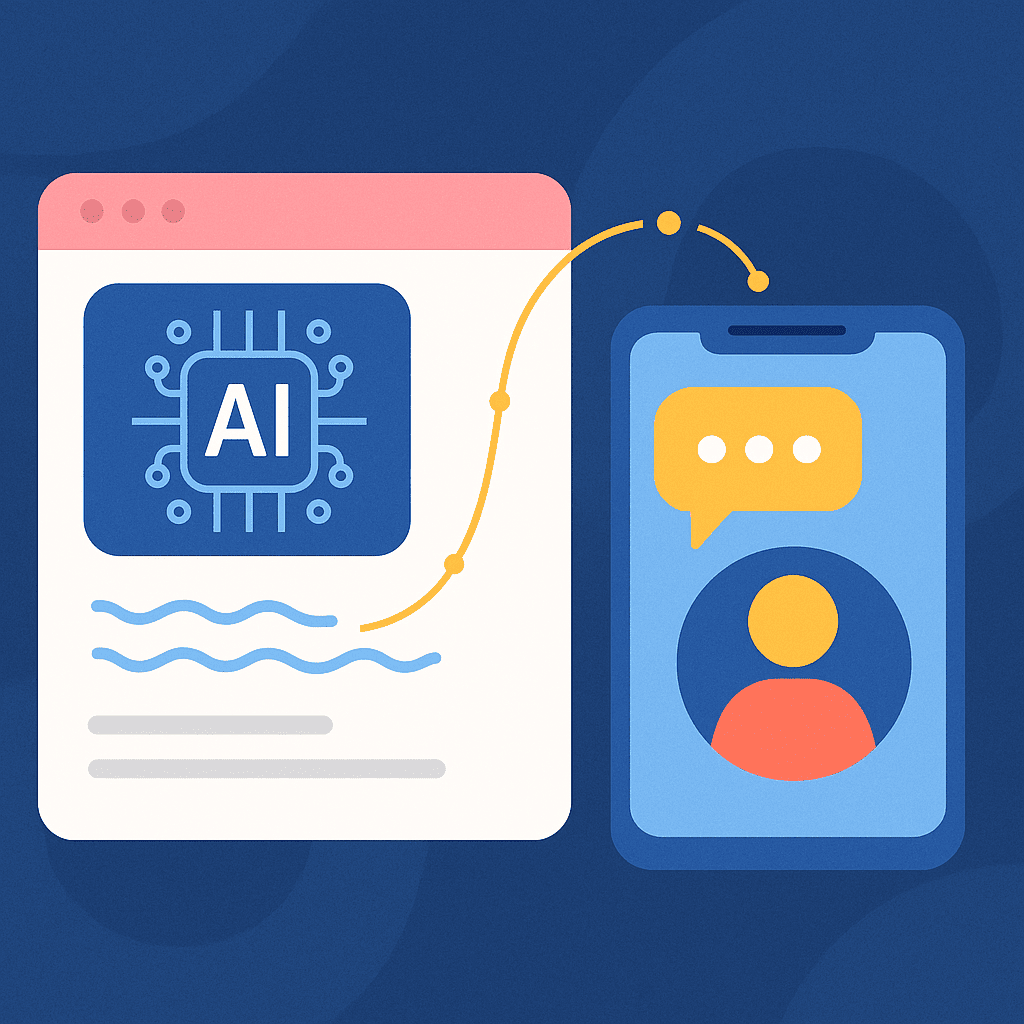Integrating Artificial Intelligence into Website and App Interfaces
Introduction
In the world of web and mobile app development, integrating artificial intelligence (AI) into interfaces has become a crucial step to deliver advanced user experiences. Interface design is no longer just about colors and layouts—it’s about intelligent systems that understand user needs and anticipate their actions.
What Does Integrating AI into Website and App Interfaces Mean?
It’s the process of incorporating AI technologies, such as Machine Learning (ML) and Natural Language Processing (NLP), into user interfaces to make the experience smarter and more personalized.
Why Integrating AI into Websites and Apps Matters
-
Enhancing User Experience (UX):
Analyze visitor behavior and adapt the interface to their preferences. -
Content Personalization:
Display tailored products, articles, or services to each user. -
Instant Support:
AI-powered chatbots to resolve customer issues immediately. -
Faster Decision-Making:
Collect and analyze data in real time for improved business insights.
Real-Life Examples of AI Integration
-
E-commerce platforms: Smart purchase recommendations.
-
Travel apps: Suggesting itineraries and bookings based on user data.
-
E-learning platforms: Adjusting lesson difficulty according to student progress.
Top Tools and Technologies for AI Integration
1. Microsoft Azure Cognitive Services
Analyze text, images, and audio to improve user interaction.
2. Google Cloud AI
Create smart recommendation systems and automate support tasks.
3. TensorFlow.js
Run AI models directly in the browser for dynamic experiences.
4. Dialogflow
Build intelligent chatbots integrated with websites and applications.
Benefits of AI in User Interface Design
-
Higher Conversion Rates through personalized experiences.
-
Increased Customer Retention with improved service.
-
Reduced Operational Costs via intelligent automation.
-
Better SEO Rankings thanks to superior user engagement.
Challenges to Consider
-
Protecting user data and privacy (GDPR, Privacy Policies).
-
Maintaining fast page load speeds.
-
Training development teams on AI tools and techniques.
Conclusion
In 2025, integrating AI into website and app interfaces is no longer optional—it’s a necessity for any digital project aiming for growth and market leadership. Businesses that adopt this approach today will lead the market tomorrow.






